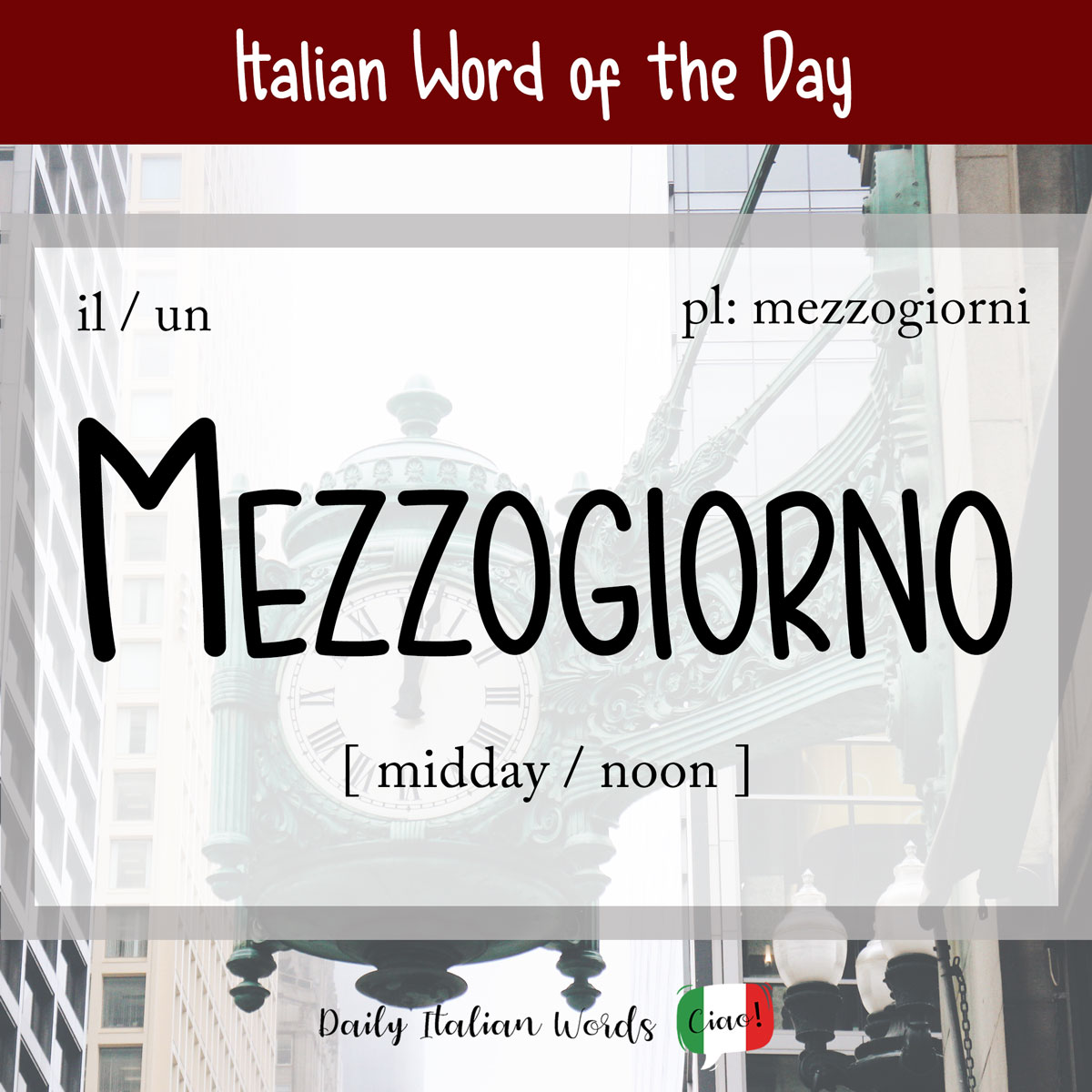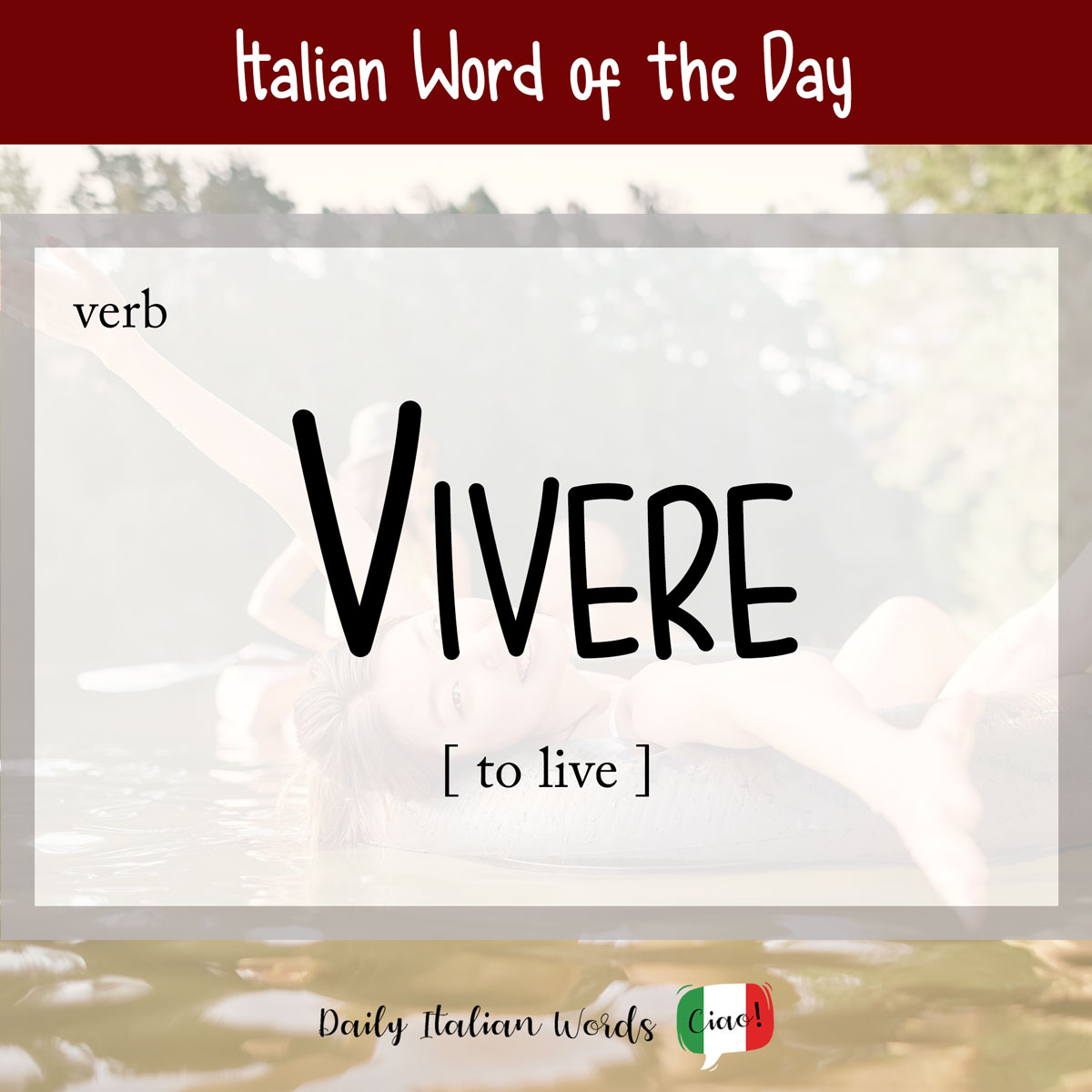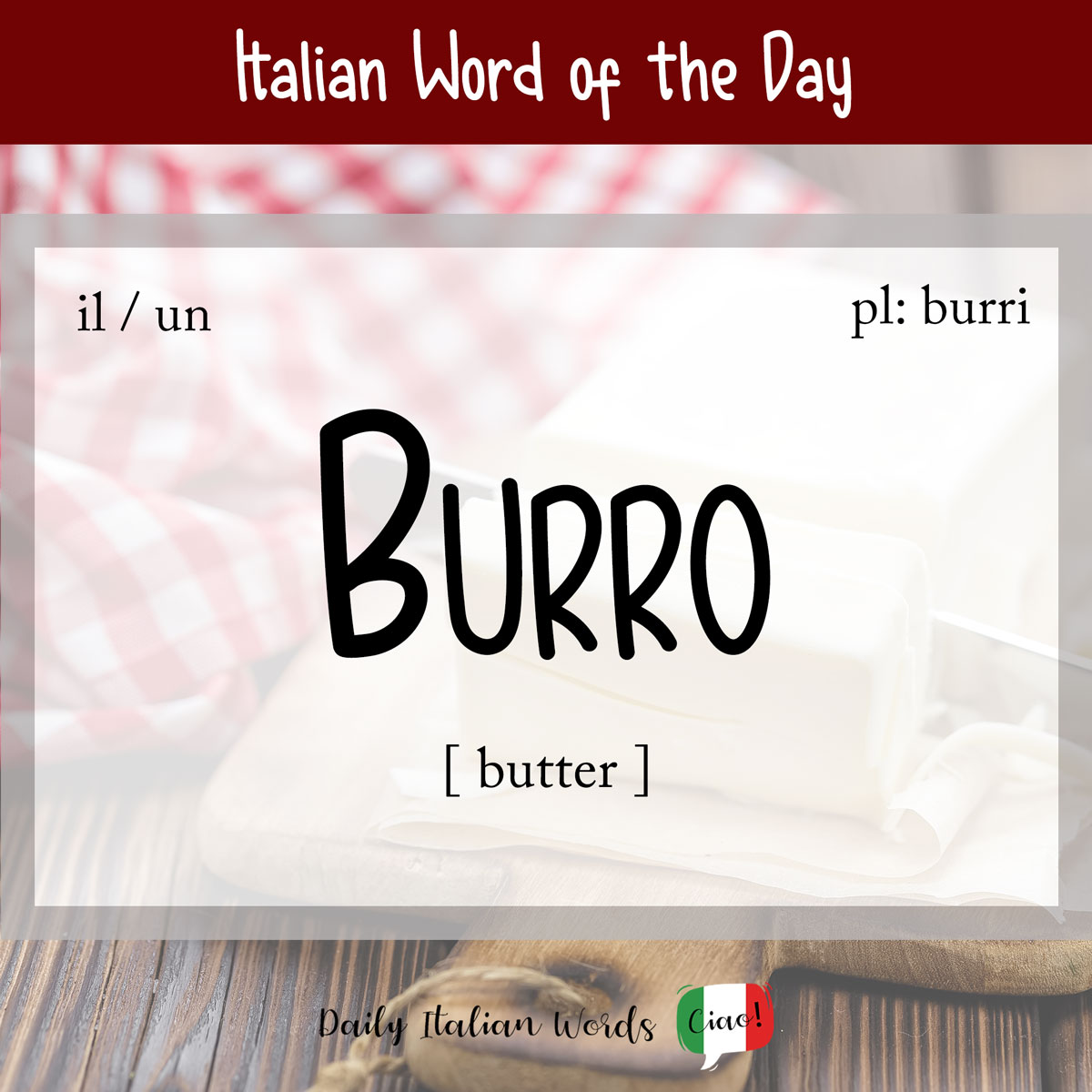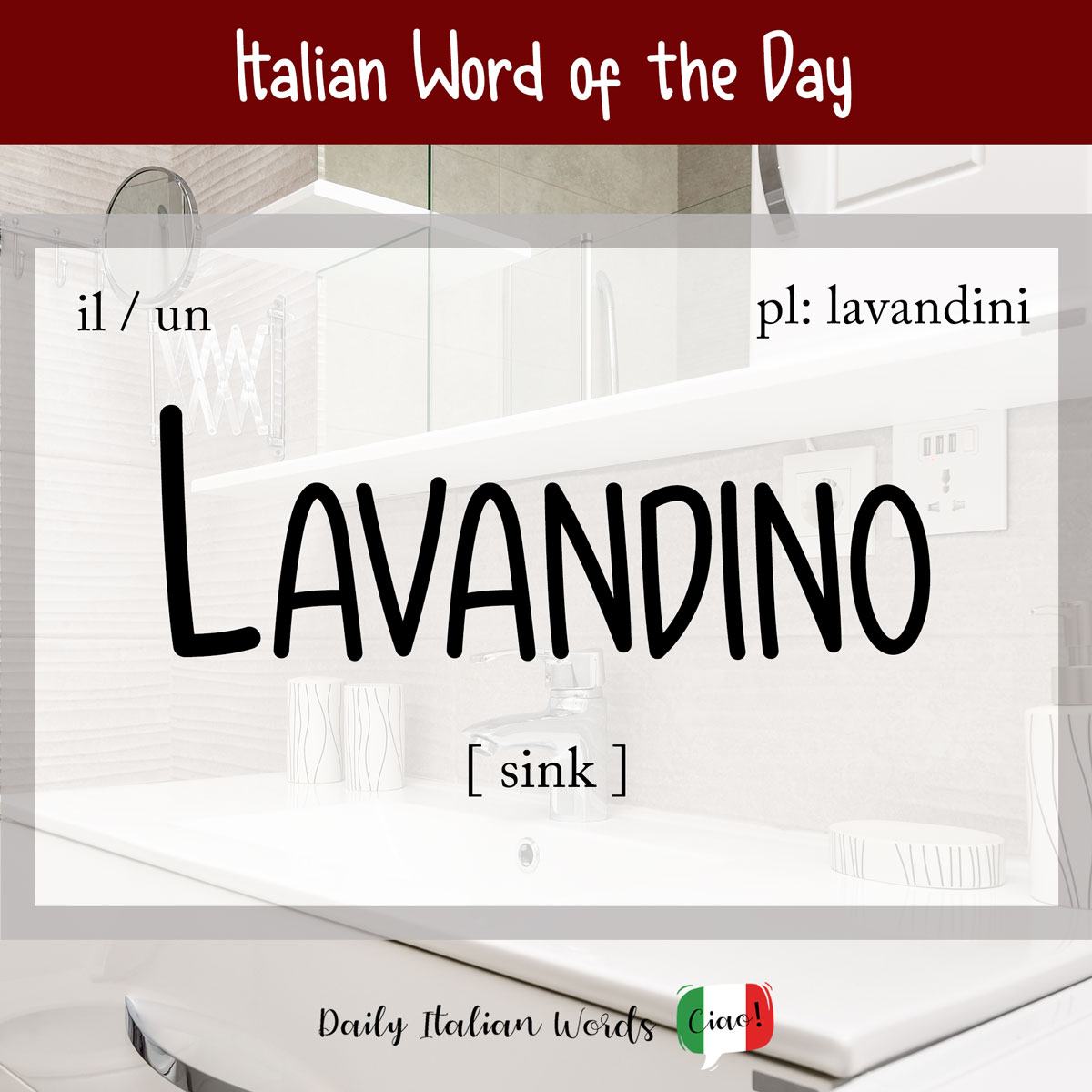Italian Word of the Day: Mezzogiorno (noon / midday)
We already discussed mezzanotte (midnight) in a previous post, so now it’s time to take a look at the other end of the temporal spectrum, mezzogiorno (noon / midday). Mezzogiorno is the combination of the words mezzo (half or halfway) and giorno (day). It is a masculine noun, so it takes the following definite and …






